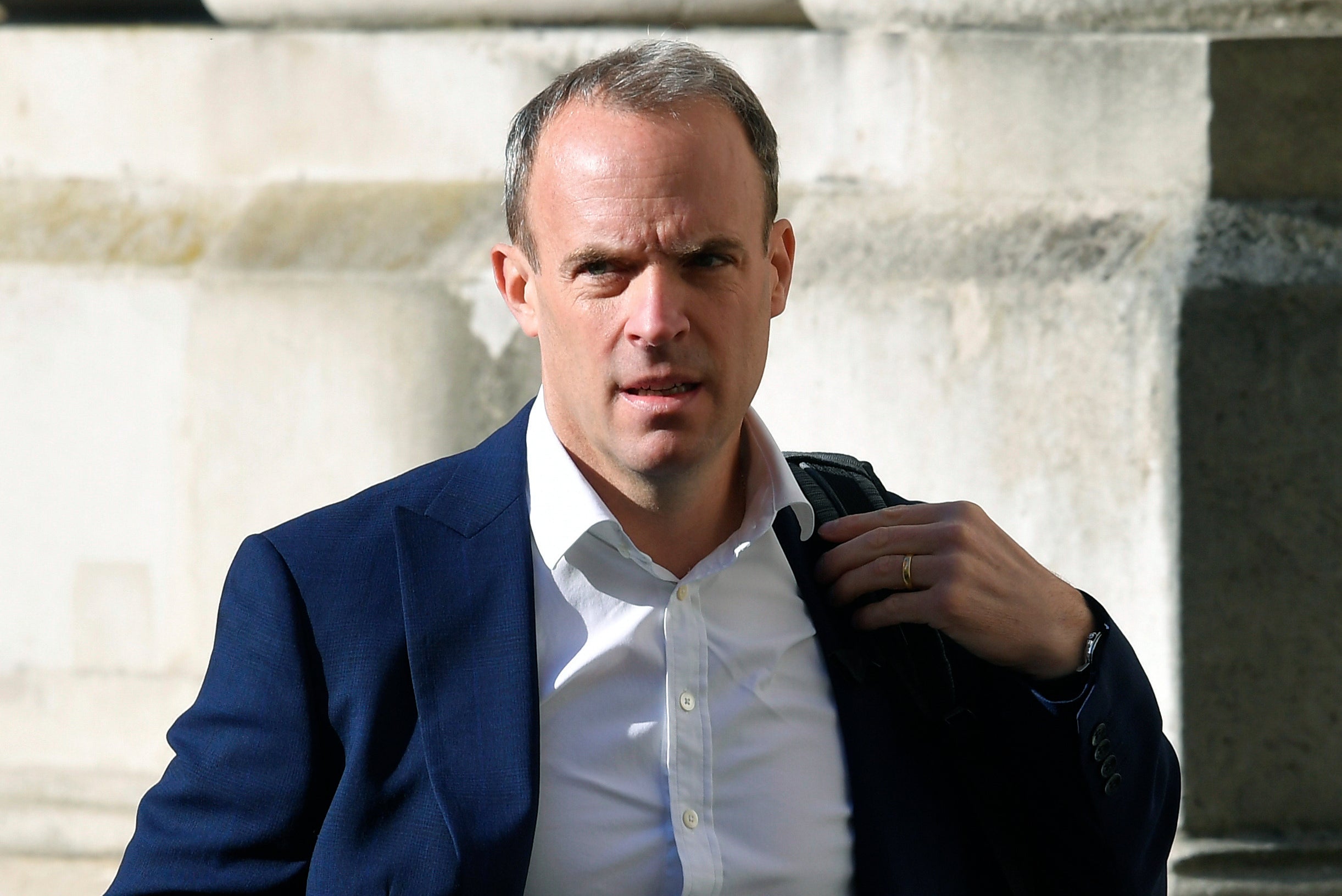‘Devastating blow’: UK to cut aid to Syria by one-third
Humanitarian organisations say decision ‘puts lives at risk’ in Middle Eastern state where 90 per cent of population lives in poverty and 12.4m face food insecurity

Dominic Raab has announced that the UK will cut aid to Syria by one-third, telling a United Nations donor conference that the government would pledge only £205m to help the country this year, down from the £300m promised in 2020.
The UK ultimately gave £400m to Syria last year, meaning that, if no further funds are forthcoming from Whitehall, the decrease will actually be closer to 50 per cent.
Mr Raab acknowledged that the Middle Eastern state and its neighbours were under even greater pressure because of the coronavirus pandemic but said Britain had paid out £3.5bn in support of Syrian refugees since 2012 and had had to revise its own priorities in light of Covid-19.
The US, EU and Germany are customarily the biggest donors to the country and likewise beset by the impact of the virus on their economies, but none of the three announced cuts to their contributions, with Mr Raab’s Berlin counterpart, Heiko Maas, pledging £480m and the same again in 2022.
Under Bashar al-Assad’s leadership, an estimated 90 per cent of the Syrian population are now living in poverty, according to the humanitarian organisation Syria Relief, with 12.4m people suffering from food insecurity and 12.2m lacking regular access to clean water.
Read more:
Mr Assad faces a presidential election this year that few of the speakers at the UN conference were optimistic would be conducted fairly.
“For 10 years, Syrians have endured death, destruction, displacement and deprivation and things are getting worse, not better,” UN secretary general Antonio Guterres said at the video summit, making an appeal for generosity as the body sought to pull together £7.3bn to help the country and its refugees dispersed in Lebanon, Turkey and Jordan.
Mr Raab’s announcement provoked a negative response from international aid agencies at home and abroad.
“Cutting funding by almost a third is a devastating blow to the millions of Syrians who fled their homes and had their lives torn apart by 10 years of conflict,” said Oxfam’s head of policy and advocacy, Sam Nadel.
“While the violence may have subsided, millions of people are still struggling to survive within Syria and across the region. Aid is needed now more than ever as the pandemic, rising food prices and failing economies have made their lives even more difficult.”

Kevin Watkins, chief executive of Save the Children UK, said the cut was “smaller than we had feared, but still disastrous for Syria’s children”.
“The reduction will have a catastrophic impact,” he added. “It could mean nearly half a million children missing out on education and more than a hundred thousand mothers and children going hungry. And this is just the tip of the iceberg.”
Syria Relief, leading a collective of 10 like-minded organisations, said the decision to slash the aid budget “will put lives at risk”.
“This decision risks the lives of 210,000 Syrians who rely on UK aid for food every month, as well as the 100,000 Syrian refugees in the region who depend on UK aid for clean water and sanitation.”
Jan Egeland, secretary general of the Norwegian Refugee Council, said the fresh round of funding was “urgently needed, a decade into this crisis that has been left to fester by world powers”.
But he too branded the UK’s cut “disappointing” and warned: “The international community has failed to exert its influence to stop Syria’s warring parties from using civilians as pawns on a chessboard. Stepping up the aid is the least they can do to help Syrians survive and recover.”
Responding to the outcry, a spokesperson for the Foreign, Commonwealth and Development Office (FCDO) pointed out the extent of the UK’s contribution since 2012 and said Syria amounted to its biggest commitment to a single humanitarian crisis.
“The conflict in Syria is one of the greatest tragedies of our generation. The UK is proud of our role supporting millions of vulnerable Syrians with life-saving food, clean water, healthcare, education and livelihoods,” the FCDO said.
“Since the start of the Syria conflict, we have committed more than £3.7bn in aid, delivering 28 million food rations, 21 million medical consultations, as well as 10 million relief packages to those in Syria and refugee-hosting nations.
“We are using our position at the UN Security Council to demand greater aid access in Syria, to drive support for the UN-led peace process and impose tough sanctions on Assad supporters.”
The cut in support for Syria follows similar measures relating to Yemen. Boris Johnson’s government has cut overall aid spending to 0.5 per cent of GDP, down from 0.7, as a result of coronavirus.
Join our commenting forum
Join thought-provoking conversations, follow other Independent readers and see their replies
Comments